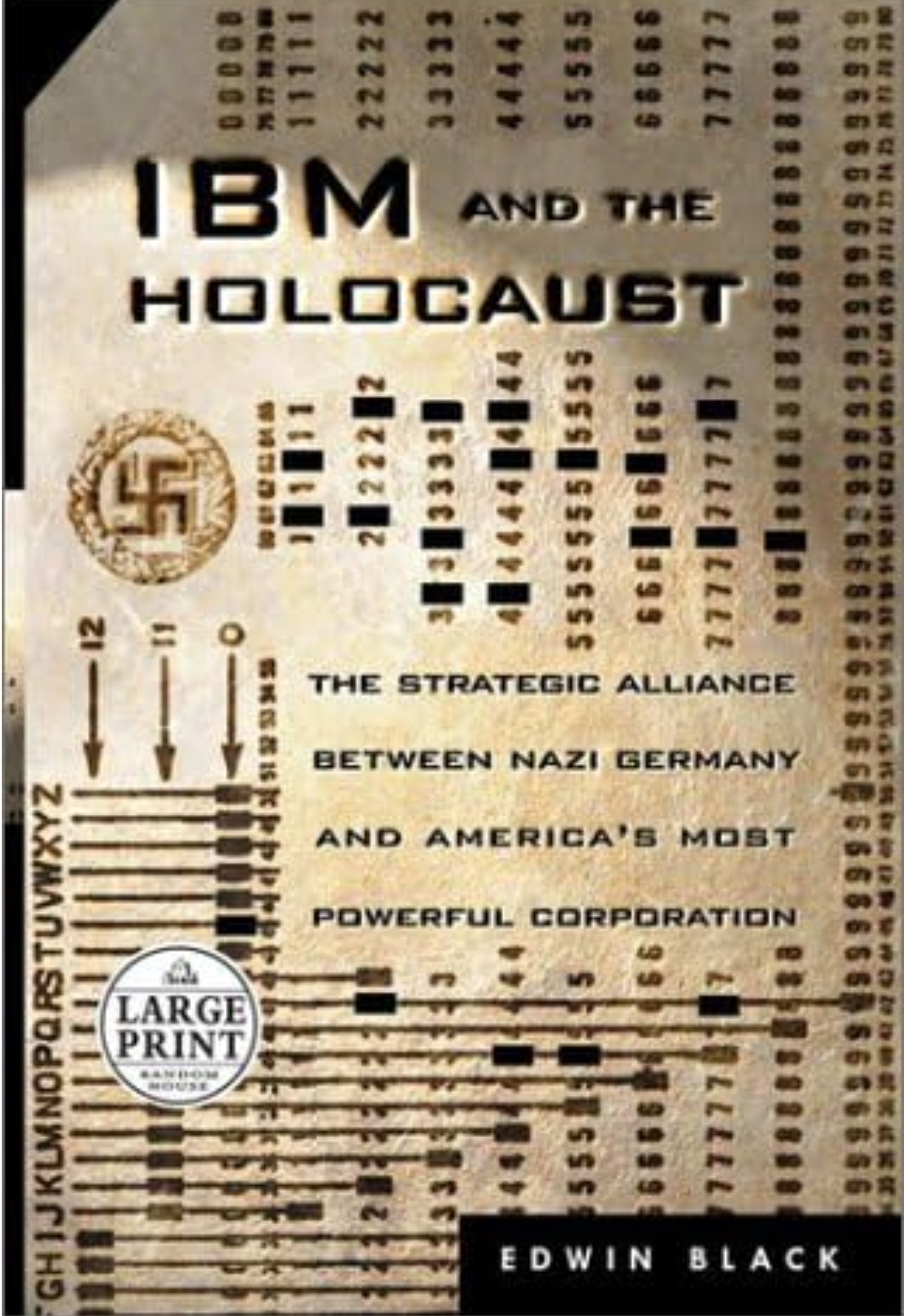Edwin Black’s IBM and the Holocaust: The Strategic Alliance Between Nazi Germany and America’s Most Powerful Corporation is a deeply researched and controversial historical account that examines the role of IBM, the American multinational corporation, in enabling the Nazi regime during World War II. Black uncovers the technological and logistical support that IBM provided to Adolf Hitler’s government, focusing on how the company’s punch card technology facilitated the identification, cataloging, and extermination of millions of Jews and other targeted groups during the Holocaust.
Key Themes and Content
IBM’s Technology and the Nazi Regime
- The book reveals how IBM’s punch card systems, a precursor to modern computers, were used by the Nazis for population tracking, censuses, and the organization of forced labor camps.
- IBM’s technology made it possible to efficiently process vast amounts of data, which was crucial to the systematic execution of the Holocaust.
- Black argues that this technology was instrumental in identifying Jewish citizens, tracking their movements, and organizing their deportation to concentration camps.
Collaboration and Business Ties
- IBM, led by its CEO Thomas J. Watson, maintained close business ties with Nazi Germany, even after the United States entered the war.
- The company operated through its German subsidiary, Dehomag, to supply and maintain the punch card machines used by the Nazis.
- IBM’s contracts and agreements ensured a steady profit stream from the Nazi regime, with Black asserting that the company prioritized financial gain over moral responsibility.
The Role of Technology in Genocide
- Black explores how IBM’s punch cards were custom-designed for Nazi purposes, including tracking ethnic backgrounds, political affiliations, and other data points.
- The efficiency of these systems contributed to the precision and scale of the Nazi extermination efforts, making the genocide disturbingly systematic.
Corporate Responsibility and Ethical Questions
- The book raises questions about corporate complicity in crimes against humanity.
- Black argues that IBM executives were fully aware of how their technology was being used and chose to continue their involvement for profit.
- The narrative highlights the broader ethical challenges of technological advancement and its misuse by oppressive regimes.
Structure of the Book
Introduction and Overview
- Black sets the stage by detailing IBM’s rise as a leading technology company and its expansion into global markets, including Germany.
The Nazi-IBM Relationship
- The book chronicles how IBM’s German subsidiary collaborated with the Nazis, adapting its punch card systems to meet the regime’s needs.
Implementation in the Holocaust
- Detailed accounts of how IBM’s technology was used for censuses, registrations, and logistical planning in the concentration camps.
Watson’s Role
- A focus on Thomas J. Watson, who received a medal from Hitler in 1937 for his contributions to German industry, and his role in fostering IBM’s relationship with the Nazis.
Aftermath and Accountability
- Black examines IBM’s actions after the war, including its attempts to distance itself from the Nazi regime and evade scrutiny.
Notable Takeaways
Technology as a Tool of Oppression
- The book illustrates how technological innovation, in the wrong hands, can become a weapon of oppression and genocide.
Moral Complicity of Corporations
- IBM’s story serves as a case study in the ethical responsibilities of corporations, particularly when operating in authoritarian regimes.
Systematic Efficiency of the Holocaust
- IBM’s punch card systems contributed to the methodical and bureaucratic nature of the Holocaust, underscoring the industrial scale of Nazi atrocities.
Corporate Secrecy and Denial
- Black discusses IBM’s attempts to obscure its involvement and the lack of accountability for its role in the Holocaust.
Impact and Legacy
- IBM and the Holocaust has become a critical reference in discussions about corporate ethics, historical accountability, and the potential dangers of technology.
- It has also prompted broader awareness of how businesses can unwittingly or deliberately contribute to human rights abuses.
Edwin Black’s IBM and the Holocaust is a compelling and disturbing examination of the intersection between technology, commerce, and genocide. The book challenges readers to confront uncomfortable truths about corporate complicity in atrocities and the ethical dilemmas posed by technological innovation. While controversial, it serves as a sobering reminder of the need for vigilance and moral integrity in both business and technology.






